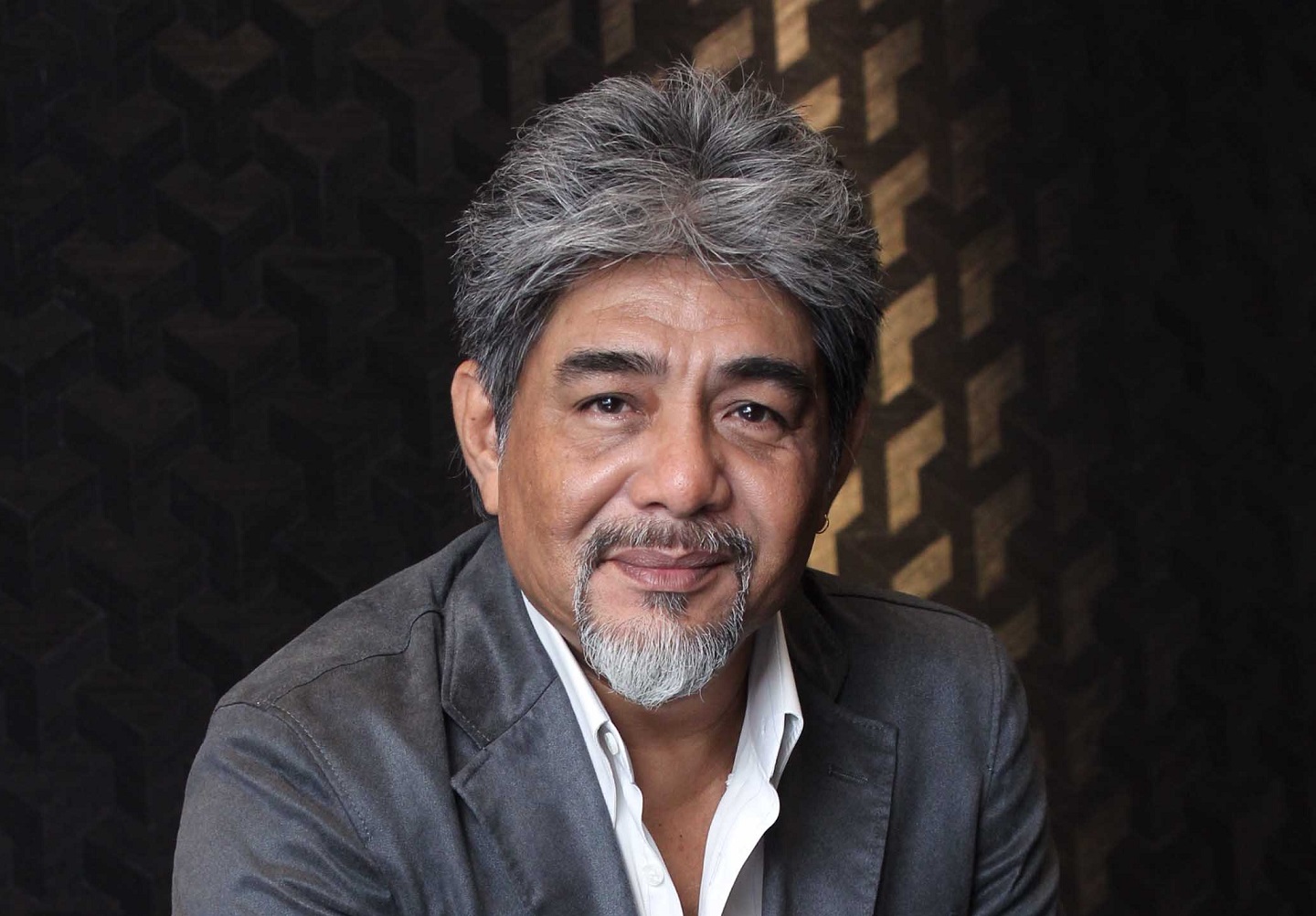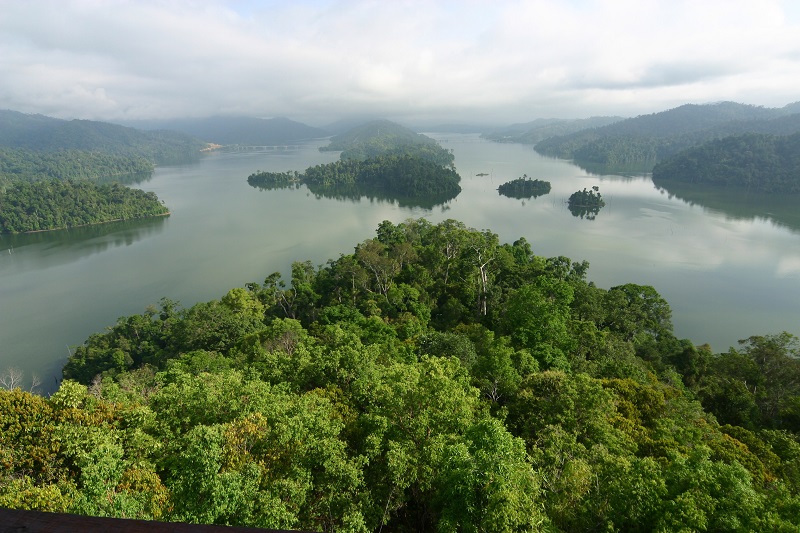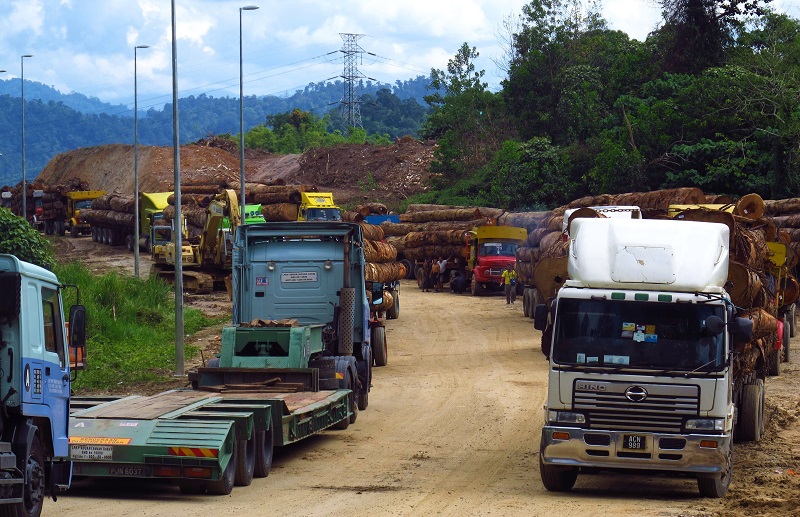
Anthony Sebastian, member of the Forest Stewardship Council (FSC) International Board of Directors (Photo: Kenny Yap/The Edge)
Growing up in the rural Sarawakian town of Marudi along the winding Baram River, Sibu-born Anthony Sebastian should have been worlds removed from the fast-changing transformation that was post-independence Malaysia. And in many ways, it was a charmed upbringing, from spending all his time bird-watching to playing in the forest areas with Orang Ulu children from tribes like the Kayan, Kenyah and Kelabit.
But what should have been an idyllic childhood was also marked by a backdrop of escalating logging and deforestation. It would not be far from the truth to say that growing up in logging heartland had a profound impact on Anthony and his career as an ecologist.
“In many ways, I am a product of this whole thing. I lived through it all. I saw it all first-hand, I had trees fall on my house,” he says, “and now I have so many classmates who are heads of some of those companies.”
As a member of the Forest Stewardship Council (FSC) International Board of Directors, he now enjoys any opportunity for a get-together to talk, be it with friends or representatives of either side of the controversial industry.
Professionally, Anthony — who is a former president of the Malaysian Nature Society — has worked in most countries in Asia and beyond. His consultancy work in forest management has paired him with local governments, development agencies and, occasionally, large corporations to help them generate sustainability and environmental benefits.
It is no exaggeration to say that Anthony’s heart lies with the Malaysian forest, although he remarks that he does not have the ardour of a tree hugger. As we sit in the PJ Hilton boardroom recently, his stories and insights into our local environmental situation — some of which shall, sadly, remain off the record — and his tireless answers to “why FSC?” over the last decade speak volumes about his passion for the cause.
“It all began in 1992 at the Earth Summit in Rio de Janeiro, Brazil, where the problem of mass deforestation was discussed … In fact, Malaysia was one of the countries highlighted as having one of the highest deforestation rates in the world. From there, several global NGOs came together to address the issue,” Anthony says, explaining how FSC came about.
Today, FSC certification has become a “gold standard” for governing anything that comes out of the forest, thanks to its tripartite vision of governance. Its guidelines, crafted by representatives of economic, environmental and social groups with equal voting, have been emulated and borrowed by many other environmental bodies since its unveiling in 1994.
“We’re surrounded by forest products,” Anthony says, commenting on the huge growth in FSC certification in the last 20 years. Unexpected items include clothing material, wild meat and perfumes. “In Europe, up to 70% of products in households can be FSC-certified. Asia is growing with Hong Kong surveyed to have around 28% of products … The 2016 Olympics in Rio reached 100% in FSC status, and now Japan is trying to get its certification for Tokyo 2020. And we’re going to start certifying car tyres made of rubber.”

In 2013, Swedish furniture giant IKEA’s FSC certification was briefly suspended when several violations were discovered, including harvesting old-growth trees. What is interesting here is the level of transparency and accountability in the reports.
“If it was the certificate alone that people wanted, there’s no need for us. You can give yourself a certificate. FSC is really a verification. It is verifying to other people, through other people, that your product is sustainable. So the premise that I can stand up and say my product is sustainable doesn’t work — somebody else has to say it. And it has to be transparent,” Anthony stresses.
This resonates, especially when compared with Malaysia’s dire forest management record — we chalked up the highest rate of forest loss between 2000 and 2012. The estimated area is larger than the size of Denmark, with half of the land converted into oil palm plantations.
Along with several NGOs, Anthony was part of a pioneering group that worked closely with the Malaysian government, from as far back as 1999, to explore stronger guidelines for logging practices here. To their disappointment, the government opted to set up the Malaysian Timber Certification Scheme (MTCS, formerly MTCC), which has been strongly criticised over the years for its lack of adherence to, and loopholes in, its guidelines.
This was a personal blow that prompted Anthony to help set up Forest Stewardship Malaysia in 2007, which he chaired until FSC Malaysia was officially launched in 2014. He then moved to the international office, becoming the first Asian to serve as FSC International chairman in 2015.
“One of the biggest problems for the government is getting the indigenous people, especially in Sabah and Sarawak, to participate in MTCS. The struggle of landownership, claims of their land being forcibly taken, the raping of their women, burning of villages — 99% of which is true — are conflicts that remain until today. Legality is the No 1 and biggest problem for Malaysia,” says Anthony.

He sees the mass conversion to oil palm as a result of weak governance. “To stop rampant deforestation, we must have a thriving timber industry. When there isn’t one, and people don’t see the value in it, they change the land use. The only way to protect and ensure a forest remains one is to put a certification on it.”
With the EU accepting only FSC-certified timber and related products, Malaysian timber is locked out of an important market, which offers a 20% premium and wider reach compared with the countries we currently export to, namely China, Japan, Taiwan and India.
“That we have the best kinds of wood is a bitter pill to swallow for many. When Cengal — or the variety of beautifully veined tropical hardwoods that very few countries in the world have, unlike us — reaches a point where prices go through the roof, say, 100 years from now... we should be doing all we can to hold on to them until then, but we don’t think far ahead enough.”
Nevertheless, FSC Malaysia is determined to persevere. In Peninsular Malaysia, there are two FSC-certified forests, both in Terengganu. In Sabah, over 600,000ha of forestry are now certified by FSC. The organisation is also focused on building awareness among companies and retailers, along with their consumers.
People care more about sustainability today, Anthony insists, which is one of the biggest motivations for companies to get FSC certification. “People may be removed from nature but within the sphere of their control, they care. The question is no longer about whether or not you have a sustainability label but why you don’t have one. People care more about that now in a brand, the image that it is a good company, be it the company’s employees or its customers.”
Despite working tirelessly to build a more sustainable future for the world’s forests, Anthony asserts that he is a bystander when it comes to nature. “Maybe, there is a sense of detachment but it allows me to do my work properly.” When pressed, he says having been to the planet’s remotest places, it is a deeply personal experience to be quietly appreciated and not preached to in discourse.
“Around 2005, I spent 3½ years in [China’s northernmost province of] Heilongjiang, trying to revive one of the world’s biggest wetlands, the size of three countries. It is the home of the Manchurian red-crowned crane. I walked in the footsteps of one of the last Siberian tigers in China — I didn’t see it but it walked right through my area. I experienced temperatures of -48°C, I experienced the vastness of landscape I could not imagine, and a modification of an environment on a scale I equally could not comprehend. It was brutal, different but a beautifully life-changing experience for me. What I’ve learnt is to be humbled in the presence of nature, that it is a very powerful thing. It made me glad to do what I do … but I’m not going back there though,” he recounts, laughing at the memory.
This article first appeared on Apr 23, 2018 in The Edge Malaysia.


